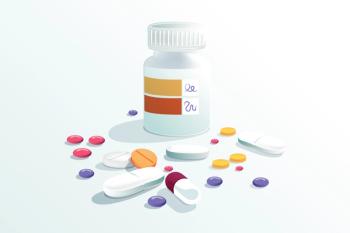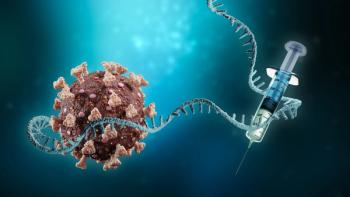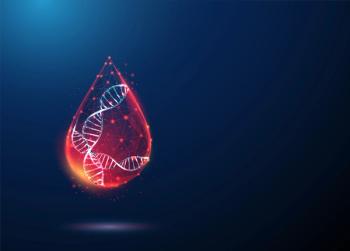
- MHE April 2023
- Volume 33
- Issue 4
Antibody-Drug Conjugates Find and Kill Cancer Cells
Three ADCs are in late-stage trials as treatments for patients with non-small cell lung cancer.
Antibody-drug conjugates (ADCs) are oncology drugs that have been compared to guided missiles because they home in on certain cell-surface targets and then unleash toxic chemotherapy drugs to battle cancer cells. They are not new. The FDA approved the first ADC more than 20 years ago, and drug developers have continued to tinker with them in hopes of making them more targeted and lethal for tumor cells. Their value was evident when
All ADCs have three components: a monoclonal antibody, a linker and a payload. The monoclonal antibody targets and binds to a predefined cell surface antigen that is expressed preferentially on tumor cells but not healthy cells. The linker connects the antibody and remains attached until the payload is released inside the tumor cell. The payload is a cytotoxic drug internalized by the tumor cell upon separation from the ADC.
The FDA approved the first ADC, Pfizer’s Mylotarg (gemtuzumab ozogamicin) in May 2000 for some patients with acute myeloid leukemia. In 2022, the FDA granted accelerated approval to Enhertu (trastuzumab deruxtecan), marketed by Tokyo-based Daiichi Sankyo and British company AstraZeneca, for the treatment of patients with non-small cell lung cancer (NSCLC).
Currently, there are at least three additional ADCs in late-stage trials aiming at fighting NSCLC.Daiichi Sankyo is developing HER3-DXd (patritumab deruxtecan), an ADC consisting of a monoclonal antibody targeting HER3 that is linked to a topoisomerase I inhibitor payload. In December 2021, the agent was granted breakthrough therapy designation by the FDA following positive results from a dose escalation phase 1 study. HER3-DXd is currently in a phase 3 study comparing its efficacy with platinum-based chemotherapy in the treatment of metastatic or locally advanced NSCLC in patients for whom epidermal growth factor receptor tyrosine kinase inhibitor therapy was not effective or eventually stopped working.
Daiichi Sankyo is also partnering with AstraZeneca in the development of Dato-DXd (datopotamab deruxtecan), an ADC consisting of a monoclonal antibody directed at TROP2. It has the same payload as HER-DXd. A phase 1b trial had promising results for Dato-DXd when used in combination with Keytruda (pembrolizumab), with or without platinum-based therapy, in patients with advanced or metastatic NSCLC. In January 2023, the companies launched a phase 3 trial; preliminary results are expected in August 2027.
The third ADC candidate for NSCLC is Teliso-V (telisotuzumab vedotin). Developed by AbbVie, Teliso-V could become the first oncology treatment targeting c-MET in patients with NSCLC, thereby grabbing the coveted “first-in-class” distinction. It is being studied in a phase 3 trial with final results due in 2025.
Rosanna Sutherby, Pharm.D., an independent medical writer and community pharmacist in High Point, North Carolina, is a regular contributor to Managed Healthcare Executive.
Articles in this issue
almost 3 years ago
Is Medicare Advantage a Disadvantage For Patients With Cancer?almost 3 years ago
Medicaid Enrollment Crosscurrentsalmost 3 years ago
For Fraudsters, COVID-19 Is the Sound of Opportunity Knockingalmost 3 years ago
CVS Health Keeps Getting Bigger and BiggerNewsletter
Get the latest industry news, event updates, and more from Managed healthcare Executive.

























